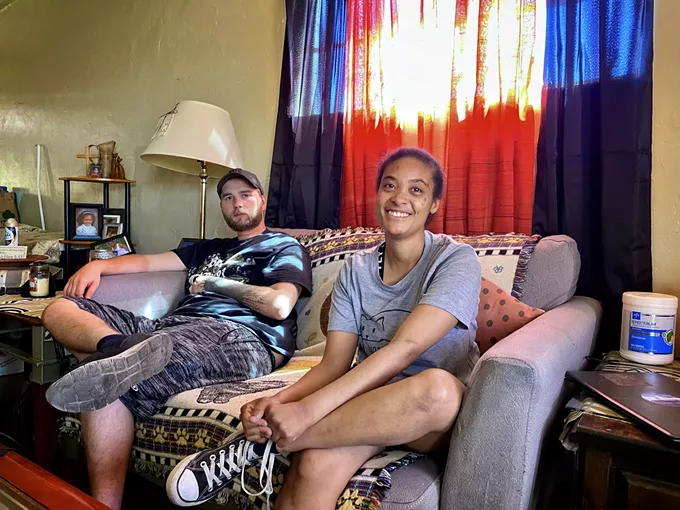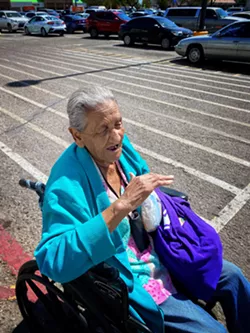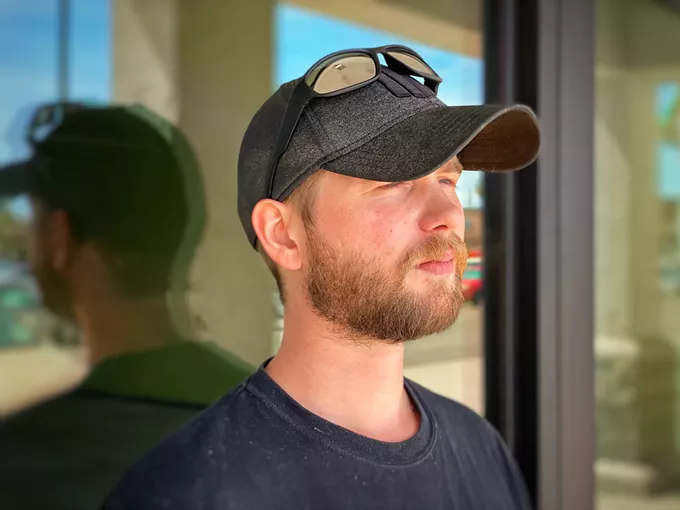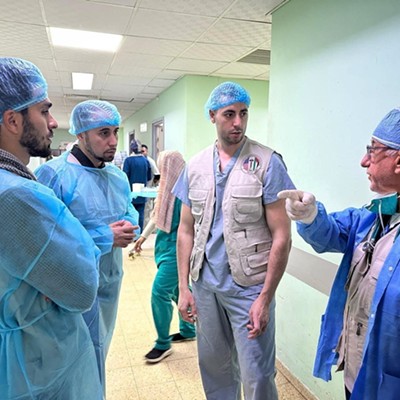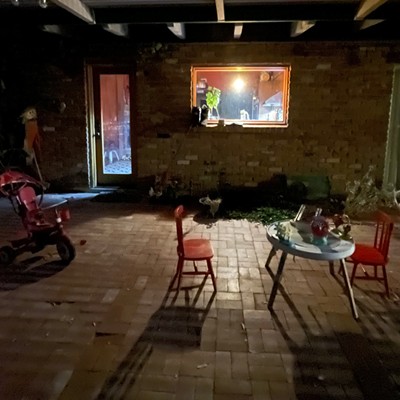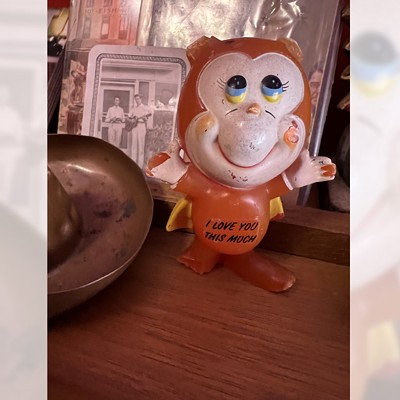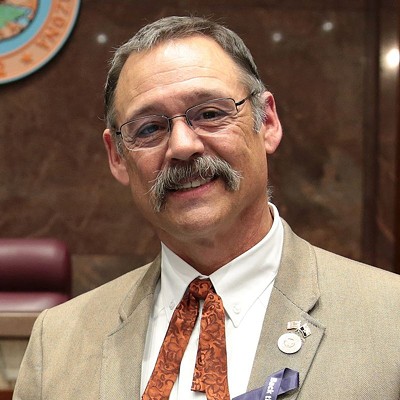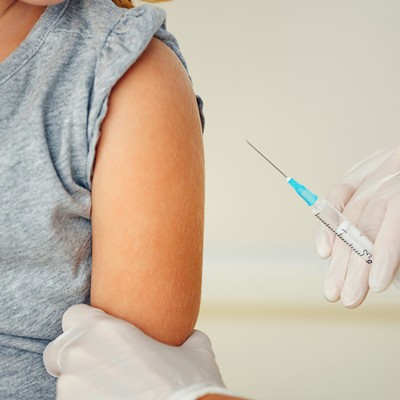[
{
"name": "Air - MedRect Combo - Inline Content 1",
"component": "29441156",
"insertPoint": "1/3",
"requiredCountToDisplay": "9",
"parentWrapperClass": "fdn-ads-inline-content-block"
},{
"name": "Top Stories Video Pair",
"component": "27651162",
"insertPoint": "10",
"requiredCountToDisplay": "1",
"parentWrapperClass": "fdn-ads-inline-content-block"
},{
"name": "Air - MedRect Combo - Inline Content 2",
"component": "29441158",
"insertPoint": "2/3",
"requiredCountToDisplay": "10",
"parentWrapperClass": "fdn-ads-inline-content-block"
},{
"name": "Air - MedRect Combo - Inline Content 3",
"component": "29441159",
"insertPoint": "1000",
"requiredCountToDisplay": "15",
"parentWrapperClass": "fdn-ads-inline-content-block"
}
]
The ancient Native woman rolls in her wheelchair through Walmart’s bustling parking lot and exhaust stink, squinting in the midday sun, moving toward the corner bus-stop. Anger moves through her tiny frame, down into her wrinkled hands, the unnatural velocity with which she forces her wheels. No one notices her, a shiny Ford truck nearly collides into her, and she hardly wants to stop and chat. She scowls and rolls, “They are out of everything, the shelves are clean!” Her name she says is Anna and few of her Walmart needs were met and she radiates zero joy despite the outward impression of joy in her dress—a colorful pastel blouse, blue duster and carefully pulled back gray hair. She says babies will be born with the virus now and mothers are doomed. She is alone in a world of vibrating humanity.
This old wizened Native woman.
The air at Walmart is wound with tight, grim synchronicity and indifference, but not panic. You want to learn everything about America? Hang at a Walmart around noon on a weekday, during a pandemic. The greedy consumption and feeding, grocery carts overflowing of sugary and salted pre-packaged items, the “unskilled labor” of the checkout-counter folks heroically keeping this town from total collapse. Robert Ward is outside the Walmart scrutinizing the parking lot and hunting a light for his smoke. His reddish beard tops a Blaze Ya Dead Homie T-shirt, baggy shorts, dark wrap shades, and a black trucker hat. A tat rises up one forearm showing a black forest engulfing a tiny dark house. First glance Ward could be any dude with menace lurking in the Walmart shade.
Nah. He’s waiting on his girlfriend who’s in the laundromat next door. He came for Gatorade.
Ward isn’t worried about the virus, he says, he has lived through truckloads of crap—the bird flu, swine flu H1N1, and has suffered 23 broken bones in his life. Been involved in four car accidents, all of which involved deaths.
Ward made national news in 2018 when that 18-wheeler blew a tire and plowed head-on into a Greyhound bus in New Mexico. He was on that bus, relocating to Tucson to be with his girlfriend from his home in York, Pennsylvania. Upon impact he vaulted out the window, slammed pavement and cartwheeled down the freeway. He hobbled back to the burning bus in back-pain fireworks, and, as reported everywhere, pulled six people off the burning bus to safety including a pregnant woman. “It took 23 minutes for paramedics to arrive. I was barely able to stand and was moving people.” He suffered back and sciatic nerve traumas, a permanent leg disfigurement from internal bleeding from his knee to his hip.
Juggalo websites hailed Ward heroic and all but sainted him. (He was wearing an ICP Hatchetman hoodie in the crash.). Two weeks ago, he took his last bus ride and the Sun Tran was sideswiped by a car. He’s afraid to hop a bus now, and he sold his car after getting off probation for a weed DUI.
Ward’s life is a string of loose, jagged edges held together with personal curiosities, which fueled his study into everything from EMT training to auto mechanics to house building, and traveling the country by bus. He has been jumped and stabbed, beaten and locked in a food pantry. His mom was tripping acid when he was born. His twin died four months later from heart complications. Mom’s next move was ditching Ward on a Maryland street corner when he was six months old. Mom saw Ward on the news in 2018 and tried to connect on Facebook. Not much has come of it.
He grew up mostly in foster care until his dad found him, which took, all told, 14 years of hunting and red-tape to get his son back. “Foster homes,” he says matter-of-factly, “are not what people think. I lived in 14 different ones and they were all ghettos, the parents only in it for the checks.” Juvie detention centers housed him too. He pounded a kid once for bullying a friend and lived two court-ordered years in an Erie, Penn detention center.
“It was like an adult jail,” he shrugs in a whorl of cigarette smoke, the heave and rattle of crammed shopping carts moving around us. “You act a certain way, khaki pants, blue polo shirt with Perseus House on the back.”
His dad and stepmom back in Penn happen to be “doomsday preppers,” and the 28-year-old has lived in shipping containers he built himself into homes, complete with interior sheet-rock walls, sliding glass doors, electrical and plumbing, bathrooms and kitchens. When he gets his $100K settlement from the bus accident his plans include purchasing a piece of land and two old school buses to convert to connected living spaces and forge a little world for his girlfriend and her 14-year-old daughter. A version of the future, off the grid, and he’s ready. He suffers from PTSD, ADHD and anxiety disorder, and right now has three dollars to his name. He fixes cars for coin, but the work has dried up since the virus fear hit. The anxiety kicks in hard around rent time, but not now about virus time. Talking pandemics, Ward, who’s white with a black girlfriend, says his dad was a racist, “but he’s not like that anymore. We lived in a poor, all-black neighborhood. He used to get beat up or robbed.” The meth in Tucson blew his mind: “I never saw a methhead until I got here. Man, they are everywhere.”
The kid grew up in poverty and abuse, a world free of safety nets others enjoy. He is like so many I meet born into poverty after 1990, hard-work resourceful and unencumbered by a greedy sense of entitlement, and whose default switch is tolerance to shitty things and shitty people. He offers his last smoke to me. He removes his dark shades and there is weariness and hurt fixed in his eyes. Wounds belie his centrifugal confidence.
He facetimes daily with his 6-year-old daughter who lives back home with the mother Ward doesn’t get along with. He shakes his head. “I miss my daughter a lot.” She is scheduled to visit him in Tucson for a few months this summer and he can’t wait.
We cross the Walmart lot to the laundromat to meet his girlfriend Vanika Hill. Ward’s mood shifts, “I worry about her and do whatever to make her happy and safe.” He cuts the tender moment: “First thing I do is get yelled at to wash my hands when I step in the door.” Ward might consider the virus overhyped but that theory goes out the window in the presence of his girlfriend.
The laundromat’s red white and blue motif is upheld by an American flag against the back wall and I overhear one woman walking out, saying to anyone within earshot that the COVID-19 disease should be called “the Trumpvirus,” because he made “it way fucking worse than it should’ve been.”
Alongside 33-year-old Hill there is a mother and son pulling clothes from a dryer, grateful the washeteria hasn’t shuttered for sanitary reasons. The place is nearly empty but the air is still heavy and processed by the working machinery and fear.
Hill produces homemade hand sanitizer “made from aloe vera and alcohol,” and squeezes some into both of our hands. She wears a mask and gloves, and wields a can of Lysol with the family clothes, which are now washed and dried. Her ailments cast her into the at-risk category for the COVID-19 disease. She has two leaky heart valves. “I am one in a million,” she says “I’m still pushing with my pig valves. The whole [cardiology] staff at Banner [Health], even the receptionist, were amazed I still had my pig valves. I’m the only person in Tucson.”
Her face transmits an innocence, and she’s fast, perceptive, upfront. Her voice buzzes in the good cheer of a woman in charge of her circumstances, seasons her sentences with stinging observations of her life and the day-to-day. She grew up in York, Pennsylvania, with her Tucson-born mother, who returned to Tucson. Hill missed mom so she followed a year later. That was four years ago. (Her dad, she says later, fathered 16 children. She calls him a “baby junkie. His life is an episode of The Jerry Springer Show and Maury combined.”)
Hill suffers a learning disability, reading comprehension, and can’t remember what she reads, unless she reads aloud. She’s diagnosed with depression and anxiety, with a medical disability, and receives some state aid. It helps. She cleans houses too, but the virus sopped that work up.
We load their Walmart groceries and two large, heavy bags of laundry into my old van and head over to their place, a small, three-bedroom cinderblock place with cracked walls near Alvernon and Grant. They are grateful for the ride. It would’ve been a trudging, unfun mile home.
We arrive and Hill isn’t so keen on a stranger in their house, the virus fear, so they seat me in a dining chair near the door and they sink into the couch six feet away.
The two met years ago when Ward was selling cat flea-and-tick medication, damaged boxes tossed from retail outlets he collected and sold under retail price. “She was standing there in her Mennonite clothing buying cat stuff,” Ward says.
Apparently, he was smitten. “He was stuttering and all giggly and so nervous,” Hill laughs. “I’ll never forget. Then I started seeing pictures of his dogs on Facebook and I knew he was one of the good ones.”
Ward’s face reddens.
Hill had become a Mennonite in Pennsylvania, stayed with the church for six years, belonging to a specific one that encouraged modesty in clothing. (Mennonites, you’ll note, are a branch of the Christian church, basically non-separatists with tentacles reaching back to the radical wing of the 16th century Protestant Reformation. Their primary loyalty is not to any nation state but to Jesus, promoting nonviolence and peace.)
Friends first, love full-bloomed after she moved to Tucson.
One cat, Anoki Stripes, slinks about the place, which is decorated with the knick-knacks of their lives, sentimental personals Hill will never toss, like the collection of Dr. Seuss books she got when her daughter was young. That daughter is a polite, happy-faced 14-year-old who steps in and out of the room, out of school for who knows how long. She grins sheepishly at mom when she brags of her daughter’s intelligence and schoolwork and reading at a higher-grade level. Everything she does is for her daughter, she says. So Hill doesn’t want her daughter’s name used for this piece. One fear is the biological dad coming back into their lives. It seems unlikely, though, she hasn’t seen or heard from him since she informed him she was pregnant.
Their three cats matter, particularly Anoki. “That cat is just like me,” Hill says, “I’m serious. He’s a passivist and I am too.”
Songs matter too, in the here and now. Hill listens to contemporary Christian and Ward’s not much of a fan, prefers old-school and aggressive stuff, underground rock and sometimes rap. Other signals of their obvious differences flare, like surprising xenophobic attention they draw as a mixed-race couple.
“It’s funny, a lot of black people hate it,” Ward says. “And guys eye-fucking her yell shit from car windows, or ask ‘What the hell are you doing with her?’ I just say, ‘I’m lucky, I guess.’”
“Ah, they can think what they want,” Hill laughs. “Ain’t no such thing as ‘act black’ or ‘act white.’”
As Hill points out, the pair hail from utterly different backgrounds yet their underlying values synchronize. “It really is about a kindness to those around you.”
Ward agrees but gently counters that the Mennonites are a cult. Hill nods, saying she still holds steadfast to the core Mennonite beliefs.
“I’m maybe naïve because I’m a slow learner,” Hill says. “But not about nonviolence and love.”
She traces the latter back to her grandmother, who, before she died, took Hill to Church often as a little girl.
The coronavirus shutdown and accumulated worries find Ward and Hill plotting a future to emotionally soothe the present, a day President what’s-his-name signs a coronavirus aid package into law.
They’ll convert the school buses into homes, create a tiny community. “Even my daughter thinks we should go off the grid,” Hill says, reminding her daughter to wash her hands after she steps to grab a banana.
They have no money but there are books and a television (Ward has his video games) and music and some food stamps, and they are here together in a fear-hyped world at a loss for answers. Hill adds, “I don’t want to say I’m terrified. I am having anxiety because people are hoarding the necessities, which leaves people like us with no money to scrounge. I see old people at the store wondering where everything is, and I just cry.”
Brian Smith's collection of essays and stories, Tucson Salvage: Tales and Recollections of La Frontera, based on this column, is available now on Eyewear Press UK. Buy the collection in Tucson at Antigone Books, 411 N. Fourth Ave.

